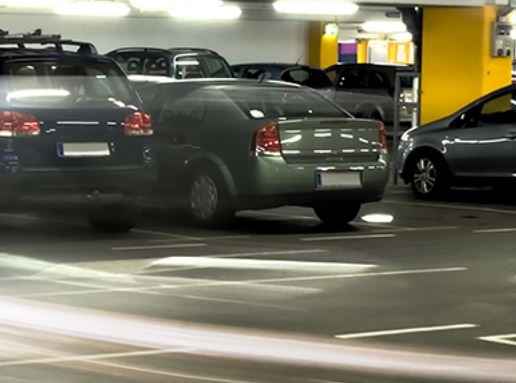How is COVID-19 Impacting the Future of Office Parking?
A new report highlights the impact of COVID on the future of office parking, with 26.8 per cent of employers looking to reduce employee car parks. As...
Read Full Article
Should smart parking be a vital component of any smart workspace with carpark facilities? A Clearview Intelligence blogger thinks so.
If smart buildings use network-enabled building management systems to operate more autonomously with sensors from across the building managing everything from heating to security, why stop there? If the comfort of occupants is paramount, making sure they can find a convenient parking space and get in to it without any hassle would make sense.
If employees are queuing to get in or out of your car park or spending 20 minutes circling a full multi-story at the beginning of the day, they start their less productive. If this is a regular issue and they need to start their commute earlier and arrive home later than they would otherwise need to, this could cost your business talent.
It could even damaging your reputation if the traffic extends to the surrounding area.
And of course, who wants that headache of employees complaining about parking.
Technology
The granularity of data gathered by smart parking solutions can be targeted to the requirements of each car park. Bay sensors allow you to identify exactly which parking spaces are free. This space availability can then be provided to users via variable message signs (VMS) or an app as drivers enter the car park so they are guided directly to the nearest available space. Technology can also facilitate the reservation of a parking space before an employee leaves for work. In this way flexible workers can be sure of a parking space before travelling into the office.
Car counting
Counting cars as they enter and exit each car park or floor of a multi-story car park will provide more general information that saves drivers entering or circling already full areas of your site. This saves time and reduces frustration. The data gathered by these systems also allows you to model usage over time and identify peak times. This intelligence can then be used to encourage remote working at these times or incentivise alternative forms of transport such as car sharing.
To read a case study of how National Grid made parking easier at their headquarters - Click Here
Article written by Brian Shillibeer | Published 11 May 2018
A new report highlights the impact of COVID on the future of office parking, with 26.8 per cent of employers looking to reduce employee car parks. As...
Read Full ArticleAn easy-to-use room booking system that helps co-working facilities work by making sharing office space easier has been launched by Evoko - and taken up by a new space in...
Read Full ArticleThe continued blur in work/life balance has contributed to unprecedented levels of poor mental health among young people in the UK, writes Lloyd Coldrick. Gone...
Read Full ArticleFSI’s Space and Workplace Management solutions have been benchmarked by independent research firm Verdantix for the CAFM/IWMS market. Verdantix has published its...
Read Full ArticleTony Booty says companies should look around carefully and grab some data before embarking on flexible working office schemes. Booty is a director at Abintra which...
Read Full ArticleUK business leaders must invest in effective and tailored employee engagement strategies to protect profits in the New Year. That is the advice from global talent...
Read Full ArticleIf a traditional signing-in book is in use, 62 per cent of those visiting or working in an office check out who’s checked in before them. So says new research by...
Read Full ArticleBrett Clark of AV specialists, Electrosonic, looks at the benefits of leasing audio visual technology solutions. In recent years there has been an increase in...
Read Full Article40 per cent of office workers say a negative corporate welcome is damaging to the brand of the companies they work for. A new industry report has analysed how...
Read Full ArticleAverage office floorspace per business in England and Wales has shrunk 16.3% in just five years according to the latest survey. Prompted by the recent boom of...
Read Full Article